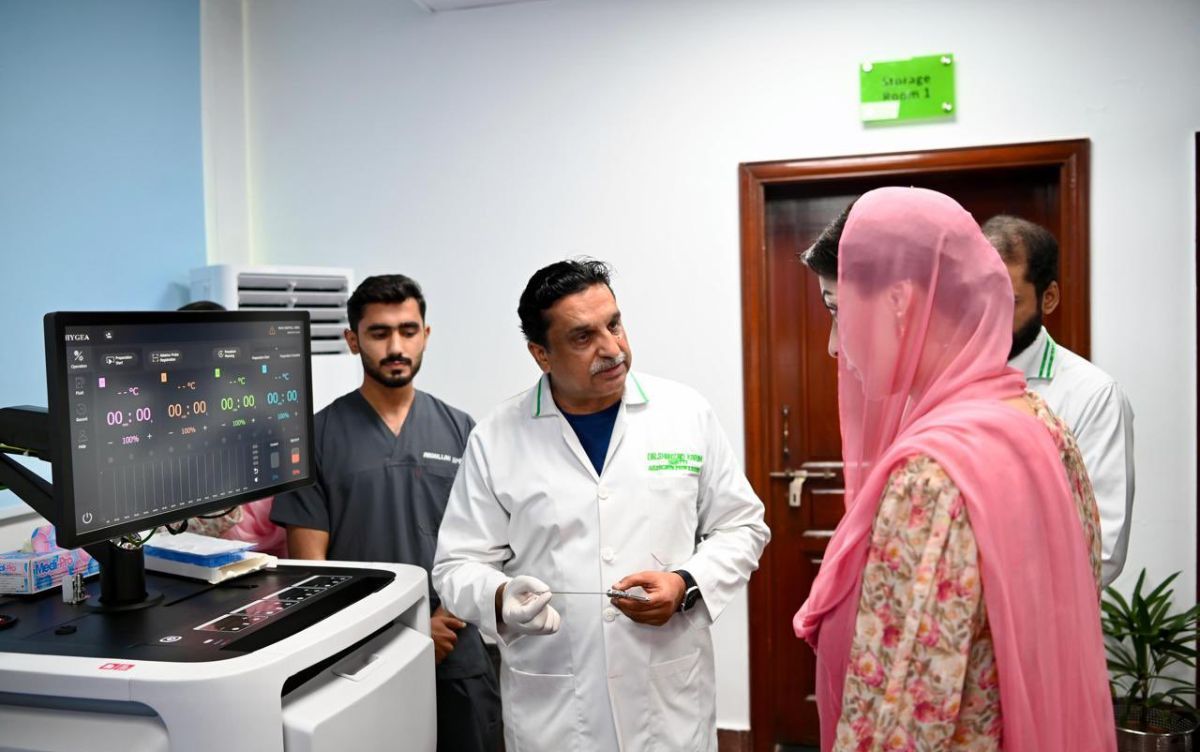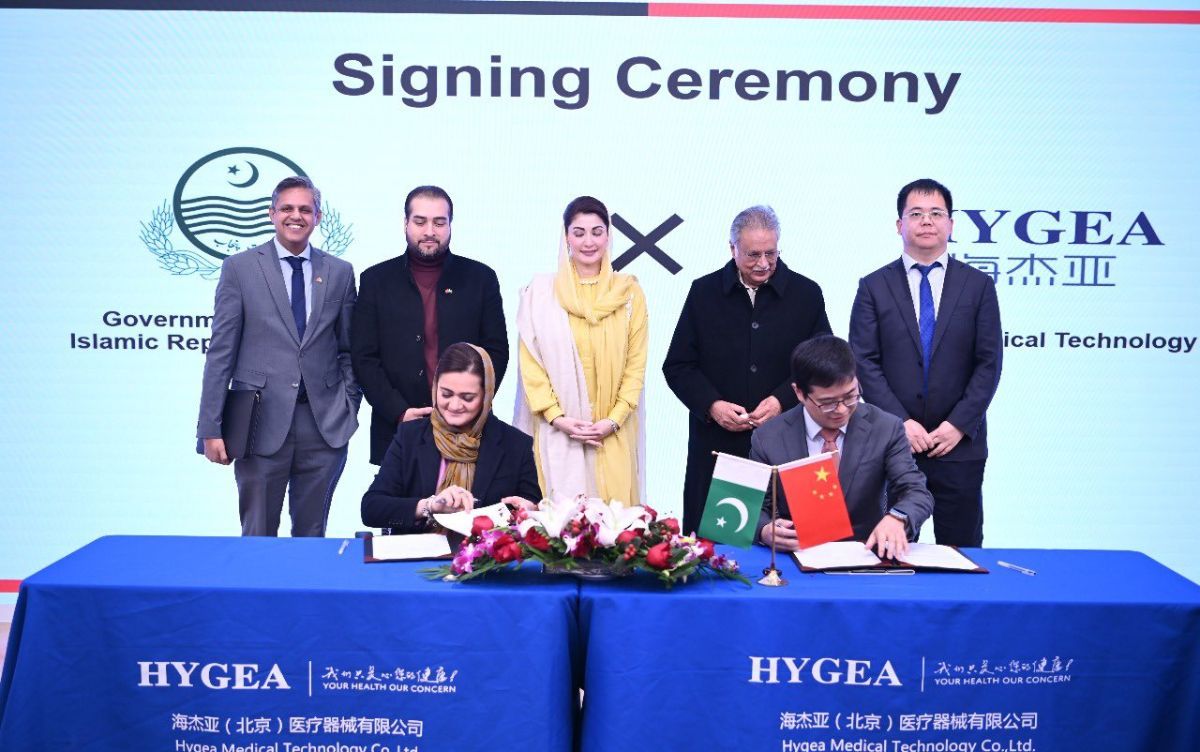China’s co-ablation cancer treatment launched at Mayo Hospital Lahore
Punjab has achieved a medical breakthrough as Mayo Hospital, one of South Asia’s oldest and largest healthcare institutions, became the region’s first to introduce China’s advanced Co-ablation cancer treatment technology. The innovation marks a turning point in oncology, offering patients minimally invasive care with shorter recovery times.
The adoption of this technology follows Chief Minister Maryam Nawaz Sharif’s recent visit to China, where she observed the Co-ablation method at Hygea Medical Equipment Company. The process involves freezing tumors at –180°C with liquid nitrogen and then carefully heating them up to 80°C, destroying malignant cells while protecting surrounding healthy tissue.
 P.c. Gwadar Pro
P.c. Gwadar Pro
“This is a revolutionary moment for Punjab,” Maryam Nawaz stated during the inauguration ceremony. “Patients are returning to their families within an hour, without surgery, radiation, or chemotherapy. Alhamdulillah, this is new hope for countless families.”
Specially trained Mayo Hospital doctors performed the first procedures successfully, treating five cancer patients who were declared cancer-free. The treatment takes 60–120 minutes and costs about 1.6 million rupees, but experts emphasize that it reduces the side effects, hospitalization time, and recovery burdens common in conventional cancer therapies.
Senior radiologist Dr. Shehzad Kareem Bhatti highlighted the machine’s precision, noting its ability to target cancers of the liver, lungs, and breasts in early stages. He described it as a game-changing addition to Punjab’s cancer treatment arsenal.
Expanding on this achievement, Maryam Nawaz announced that more Co-ablation machines will soon be installed in Nishter Hospital Multan, a Rawalpindi facility, and Nawaz Sharif Cancer Hospital. She also emphasized the training of specialized doctors and collaborative programs with Chinese experts to advance Punjab’s medical technology landscape.
By adopting Co-ablation, Punjab has taken the lead in South Asia’s oncology innovation, showing that China-Pakistan cooperation under CPEC extends well beyond infrastructure—into healthcare and human development. “This machine is more than equipment,” Maryam Nawaz remarked. “It represents new hope for thousands battling cancer across Pakistan.”
